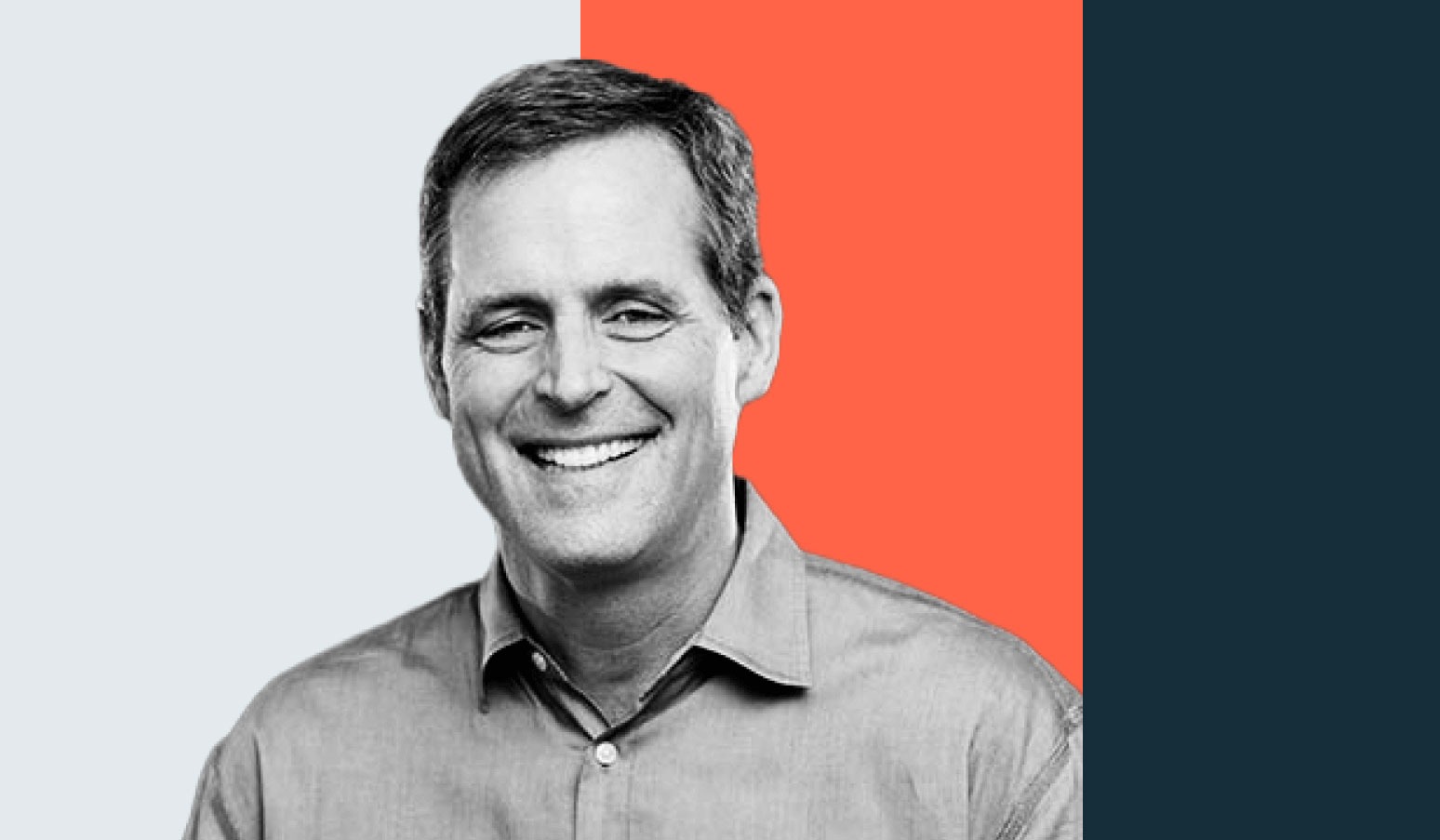Success is often sold as a linear journey — if you follow the right steps, you will make a straight journey to the top. For Bill Losch, former CFO at Okta, the journey to becoming a CFO meandered through many industries and involved a variety of learning curves outside the scope of his accounting background. Sitting down with Airbase Founder and CEO, Thejo Kote, as part of our Path to Becoming a CFO series, Bill discussed this journey and offered insights into the evolving CFO role.
Accounting as a multi-industry passport.
After graduating from UCLA, Bill started his career in the accounting field with a job at KPMG. Bill went on to leverage that accounting experience to obtain financial roles as CFO at MobiTV Inc., and CAO at Yahoo! Inc. and DreamWorks Animation.
Bill commented that he spotted the potential of the internet early on, and this is what drew him to work at companies like MobiTV (a leading video delivery service company). He could tell that the tech industry was the place to be. His work at Yahoo! created connections that led him to work for DreamWorks. Being FP&A accredited, Bill was able to obtain central roles in both these companies. Working on financial strategies, which revolved around the companies going public, Bill obtained experience outside of the accounting department, as well as outside the U.S.
It was these broader roles at international companies that gave Bill ‘‘the ability to interact and to be involved with business decisions and strategy with the different business units… both within Central Europe and globally.’’
“It wasn’t just that I could do the spreadsheets and analysis. I was really starting to understand and make a difference with business decisions.”
How technology can help the modern CFO.
During his interview with Thejo, Bill reflected on how being a CFO has changed in recent years. He explained that in early-stage companies, certain areas from a corporate governance/accounting standpoint can be overlooked due to the heightened focus on growing the company (perhaps with the end goal of going public). Bill credits new technologies and software platforms, such as Airbase, with helping CFOs in early-stage companies spend more time on analysis and data curation.
“Finance people by nature have so little time because they have so much on their plates. The more you can scale operations using technology, the better you’re going to be.”
Bill observed that smart CEOs, other executives, and board members realize that strong financial organization adds a lot of strategic value to the company. Software platforms improve processes through automated accounting and analytics.
The cutting edge to becoming a CFO, mentorships, and industry reflections.
Thejo pointed out that not everyone who works in finance ends up a CFO, which led to the question: What gave Bill the cutting edge, and was it always his goal to become a CFO?
In response, Bill outlined several important factors which led him to where he is today. He said that he didn’t always envision a CFO role for himself but, looking back, he can see one common characteristic he shares with others who have succeeded around him: intellectual curiosity. This isn’t the first time in our Path to Becoming a CFO series we’ve heard this term — both Kate Bueker (CFO at Hubspot) and Ned Segal (CFO at Twitter) emphasized the importance of being intellectually curious, and how it sets you apart within your career and industry. So, what does it mean?
Bill explained that it is a desire to not only perform your financial functions, but also to ask questions to understand the underlying business needs behind them. For Bill, the ability to ask questions can also be a way to “overcome challenges regarding new opportunities” and not pigeonhole your progress based on the skillset you may have started out with. “This kind of curiosity makes a person stronger in whatever kind of role they end up in,” he said, adding that it’s particularly important in smaller companies.
“Small, fast-moving companies are a great place to show intellectual curiosity, but you have to be aggressive.”
Mentorship can assist this curiosity and help your initiatives get recognized. Retrospectively, Bill now appreciates just how important mentors are to a career and offers this advice to those seeking meaningful mentorships:
- Ask yourself what you are trying to get out of your mentor when you interact with them.
- Mentors do not need to be of specific relevance to the job at hand. Sometimes, their advice is more general, but still just as valuable.
- Mentors can be anyone who you respect, or who can answer general industry-related career questions for you.
Bill also emphasized the importance of taking time to reflect on which industry you want to work in as you advance your career. He feels that you need to be excited about your industry to really thrive in your work.
Understanding your influence as CFO and fusing finance with management.
Bill explained that financial departments now have a lot more perceived value within organizations than they did when his career began. Furthermore, he said that understanding your influence as CFO of any modern company is fundamental to carrying out your responsibilities successfully.
“A big part of your job as a CFO is to influence — your ultimate goal as CFO is to be the strategic partner of the CEO in growing the company.”
Bill acknowledged that this influence does not come without difficulty, especially since the head of finance can often hold the “power of the purse,” and financial management can sometimes leave employees frustrated. He credits transparency as the key to overcoming this.
“Management is the hardest thing to do,” Bill said, as he explained that it did not come naturally to him. His advice to those facing difficulties in the area of financial management:
- Prioritize: You cannot fix everything at once, so outline what needs to be addressed and when.
- In small or mid-market companies, give employees freedom — prioritize and delegate, but allow employees to “do their thing” in getting results.
- Stay transparent: Bill noted that Todd McKinnon (CEO at Okta) takes this approach in helping employees “understand misunderstandings” — outline ramifications, then outline alternatives when explaining decisions to employees.
Watch the entire conversation with Bill Losch.
 Jira Integration – Streamline Your Workflows
Jira Integration – Streamline Your Workflows  Ironclad Integration – Simplify Legal Operations
Ironclad Integration – Simplify Legal Operations  Asana
Asana 




